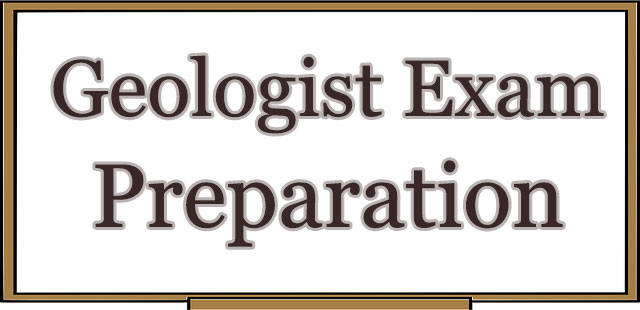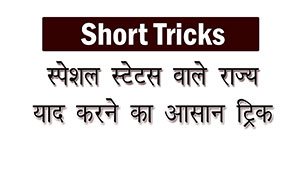-
Geologist Examination
Updated : 15-Jun-2017
This exam is conducted by Union Public Service Commision . Normally the examination dates commences in February month while the exam is conducted in May with a duration of three days.
Geologists examinations are categorised into three exams further -
- Geologist Group A
- Geophysicist Group A
- Chemist A
- Junior Hydro geologists
Eligibility Criteria for Geologist Examination
Candidates are expected to meet the following criteria -
- Indian citizenship Or,
- A subject of Bhutan Or,
- A subject of Nepal Or,
- Individuals belonging to Indian Origin but have migrated from Pakistan, East African countries of Kenya, Uganda, Zambia, Malawi, Burma, Sri Lanka, the United Republic of Tanzania, Zaire and Ethiopia or Vietnam Or,
- All those individual who are Tibetan refugee and came into India before the 1st January, 1962 for permanent settling in the country.
Desired Age
- Desired age for the general category candidates is 21-32 years.
- Age relaxation for SC/ST category candidates is 5 years.
- Age relaxation for OBC category candidates is 3 years, and
- Blind, deaf mute, and orthopaedically disabled candidates have the age relaxation of 10 years.
Educational Qualification
- For Geologists Gr ‘A’ in Geological Survey of India: Candidates should be Master degree holders in Geology or Geological Science or Applied Geology or Mineral Exploration or Engineering Geology or Geo-Exploration Marine Geology or Earth
- Science and Resource Management or Oceanography and Geochemistry or Petroleum Geosciences or Coastal Area Studies or Geological Technology or Geophysical or Petroleum Exploration Technology from a recognized university.
- For Geophysicists Gr ‘A’ in Geological Survey of India: M.Sc. in Physics or Applied Physics or M.Sc. (Geophysics) or Integrated M.Sc. (Exploration Geophysics) or M.Sc. (Marine Geophysics) Or M.Sc (Applied Geophysics) or M.Sc. (Tech.) (Applied Geophysics) from a recognized university.
- For Chemists Gr ‘A ‘ in Geological Survey of India: M. Sc. in Chemistry or Applied Chemistry or Analytical Chemistry from a recognized board.
How to apply for Geoologist Examination ?
Interested candidates can apply for the desired openings online for Combined Geo-Scientist and Geologist Examination from the official portal link of UPSC i.e. www.upsconline.nic.in. Candidatates are informed to submit the application with the deadline in order avoid further rejection. Application fee for general category excluding Female candidates is Rs 200, which candidates either can pay through a challan in any of the SBI bank sites or through credit or debit card online.
Geologist Exam Pattern
The test will be conducted in two major parts respectively.
Part 1 will be written test and Part 2 will be Personality test.
Written Test
1) General English ( Common for all category) - 3 hours - 100
For the post of Geologist
Geology Paper 1 3 hours 200
Geology Paper 2 3 hours 200
Geology Paper 3 3 hours 200
For the post of Geophysicist
Geophysics Paper 1 3 hours 200
Geophysics Paper 2 3 hours 200
Geophysics Paper 3 3 hours 200
For the post of Chemist
Chemistry Paper 1 3 hours 200
Chemistry Paper 2 3 hours 200
Chemistry Paper 3 3 hours 200
Syllabus
Geology ( For Geologist )
Paper - 1
Section A
Geomorphology Remote Sensing
Section B
Structural Geology
Section C
Geodynamics
Section D
Stratigraphy
Section E
Palaeontology
Paper -2
Section A
Mineralogy and Geochemistry & Isotope Geology
Section B
Igneous Petrology
Section C
Metamorphic Petrology & Processes
Section D
Sedimentology
Section E
Environmental Geology and Natural Hazards
Paper - 3
Section A
Indian mineral deposits and mineral economics
Section B
Ore genesis and Geophysics
Section C
Mineral exploration
Section D
Geology of fuels
Section E
Engineering Geology
Geophysicist - Geophysics
Part A
- Solid Earth Geophysics
- Earthquake and Engineering Seismology
- Mathematical methods in Geophysics
- Geophysical Inversion Fundamental
- Mathematical Methods of Physics
- Thermodynamics and Statistical Physics
- Electrodynamics
- Introductory Atmospheric and Space Physics
Paper - 2
- Geophysical Potential Fields (Gravity and Magnetic)
- Electrical and Electromagnetic methods
- Nuclear and Particle Physics
- Electromagnetic Theory
- Classical Mechanics
- Seismic Prospecting
- Borehole Geophysics (Principles of Well logging)
- Atomic and Molecular Physics and Properties and Characterization of materials
Paper -3 Radiometric Exploration / Airborne Geophysical surveys for Geological Mapping
- Marine Geophysics
- Geophysical Signal Processing
- Remote Sensing and GIS applications
- Solid State Physics
- Laser systems
- Laser cavity modes
- Electronics and devices
- Digital electronics, Radar systems, Satellite communications
- Quantum Mechanics
CHEMISTRY For Chemist CHEMISTRY PAPER-I Inorganic Chemistry
- Chemical periodicity
- Chemical Bonding and structure
- Chemistry of coordination compounds
- Acid-Base reactions
- s-Block Elements
- p-Block Elements
- Chemistry of d- and f- block elements
- Precipitation and Redox Reactions
- Organo metallic compounds
- Nuclear chemistry CHEMISTRY PAPER-II Physical Chemistry
- Kinetic theory and the gaseous state
- Collision of gas molecules, Real gases
- Chemical kinetics and catalysis
- Adsorption and Surface Chemistry
- Photochemistry
- Quantum Chemistry
- Basic principles and application of spectroscopy
- UV Spectra
- PMR Spectra
- Acids-bases and solvents
- Solutions of non-electrolytes
- Liquid state
- Thermodynamics
- Application of Second law of thermodynamics CHEMISTRY PAPER-III Analytical Chemistry • Theoretical basis of Quantitative inorganic analysis • Gravimetric Analysis • Sampling and treatment of samples for chemical analysis • X-ray methods of Analysis • Inductively coupled plasma spectroscopy • Analysis of Minerals, Ores and Alloys • Analysis of petroleum and petroleum products • Analysis of coal and PART-B (Organic Chemistry): • Basic organic chemistry • Organometallic compounds • Bonding and physical properties • Aldol and related reactions • Mechanism of some name reactions • Electrocyclic Reactions • Organic Reaction Mechanisms • Organic Spectroscopy • Volumetric Analysis • Acid base titrations • Redox Titrations • Complexometric titrations • Chromatographic methods of analysis • UV-Visible Spectroscopy • Flame photometry and Atomic absorption spectrometry
Aspiring candidates are requested to visit Official site of UPSC http://www.upsc.gov.in/ for the detailed information.














